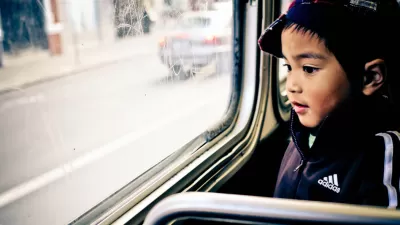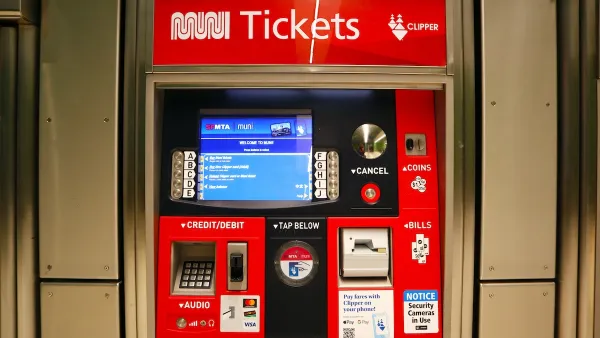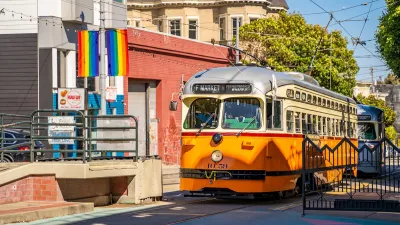In Minneapolis and San Francisco, public transit agencies are considering loyalty programs to boost ridership.

Sallie Burnett, business consultant, argues that loyalty programs like those used by airlines, hotels, and other businesses could help increase transit ridership. She points to what she sees as successful pilot programs in Minneapolis and San Francisco. "One example is Minnesota's Ride to Rewards programs, the first public transit frequent rider program in the nation," Burnett writes in Forbes. 80% of participants in that program said the perks they accrued riding transit would make them more likely to ride in the future.
Rewards programs could also be used to shift demand, "BART Perks was a test program conducted in the Bay Area that experimented with offering customers rewards for using transit outside of peak travel times. It lasted six months and encouraged participants to shift their commute away from the peak time of 7:30 a.m. Nearly twice as many people signed up than predicted," Burnett writes. The program also had the secondary benefit of getting people to post about their commutes on social media pages. Connecticut and Nashville transit agencies have also experimented with loyalty programs.
Burnett think the industry has an opportunity to take advantage of a tactic that, when properly implemented, has proven in other industries to be successful.
FULL STORY: Can Loyalty Programs Reverse Declining Public Transit Ridership?

Planetizen Federal Action Tracker
A weekly monitor of how Trump’s orders and actions are impacting planners and planning in America.

Maui's Vacation Rental Debate Turns Ugly
Verbal attacks, misinformation campaigns and fistfights plague a high-stakes debate to convert thousands of vacation rentals into long-term housing.

Restaurant Patios Were a Pandemic Win — Why Were They so Hard to Keep?
Social distancing requirements and changes in travel patterns prompted cities to pilot new uses for street and sidewalk space. Then it got complicated.

In California Battle of Housing vs. Environment, Housing Just Won
A new state law significantly limits the power of CEQA, an environmental review law that served as a powerful tool for blocking new development.

Boulder Eliminates Parking Minimums Citywide
Officials estimate the cost of building a single underground parking space at up to $100,000.

Orange County, Florida Adopts Largest US “Sprawl Repair” Code
The ‘Orange Code’ seeks to rectify decades of sprawl-inducing, car-oriented development.
Urban Design for Planners 1: Software Tools
This six-course series explores essential urban design concepts using open source software and equips planners with the tools they need to participate fully in the urban design process.
Planning for Universal Design
Learn the tools for implementing Universal Design in planning regulations.
Heyer Gruel & Associates PA
JM Goldson LLC
Custer County Colorado
City of Camden Redevelopment Agency
City of Astoria
Transportation Research & Education Center (TREC) at Portland State University
Jefferson Parish Government
Camden Redevelopment Agency
City of Claremont





























